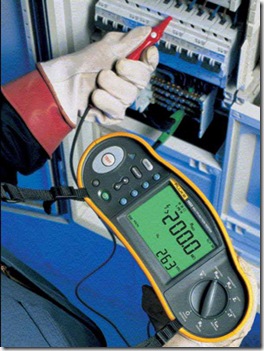Periodic Electrical Installation Inspection – How Often?
 Inspection of electrical installations on a periodic basis is essential to ensure the continued safety and reliability of such installations.
Inspection of electrical installations on a periodic basis is essential to ensure the continued safety and reliability of such installations.
How often installations are inspected is up to the owner of the installation, provided such durations do not exceed any regulatory maximums in force. The criticality of the electrical installation to the continuation of the business, often determines how frequently the installation is inspected, for example many banks will carry out annual inspections of their installations. Other types of enterprise may do inspections more frequently and many installations are only inspected as often as required by regulation.
It is also possible, that different parts of an electrical installation are inspected with varying periods. Critical systems may be inspected more often than non-critical systems.
Depending where you live, it is likely that electrical installation regulations will exist, which will state the maximum duration allowable between inspections. For example in the IEE Wiring Regulations in the UK and the National Electric Code in the US, both deal how long an installation can be left without being inspected.
As an example in the UK, IEE Guidance Note 3, Inspection & Testing contains a table which gives the maximum allowable periods between inspections - offices, residential accommodation five years, leisure complexes, theatres three years, marinas, swimming pools one year, … , etc.
Now that the when has been covered, my second post will look at what should be inspected:
Periodic Electrical Installation Inspection – What to Inspect?